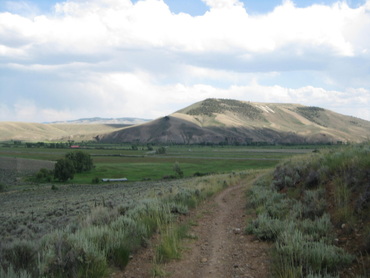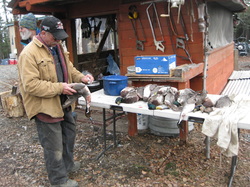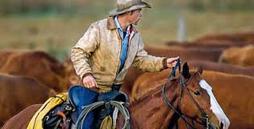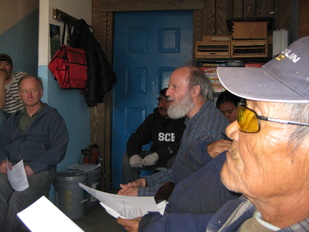Communities & LivelihoodsI am interested in helping communities assess, understand and adapt to local manifestations of climate change. I believe that scientists need to work with local people to chose relevant and user-inspired research, empower communities to learn about their places, and translate and utilize science in efforts to adapt to a changing world.
|
Resilience and Vulnerability of Land-Based Livelihoods in Upper Gunnison Watershed.
Project: This project uses interviews with community members, including ranchers and recreation-based businesses, to understand self-perceptions of resilience and vulnerability, the opportunities and challenges they see in climate projections, and the adaptation strategies they suggest.
Research Partners: The Nature Conservancy, the Gunnison Climate Change Working Group Take away: Participants were able to provide valuable information about how climate change might impact them, suggest relevant qualitative indicators of their resilience and vulnerability, and identify thresholds of concern. This project illustrates that community members are already adopting strategies for the long-term resilience of their livelihoods, which could provide a valuable basis for adaptation planning. Participatory methods foster understanding of social-ecological systems by identifying qualitative indicators, widening the dialogue beyond climate change, and revealing local heterogeneity. This project suggests that climate change planning processes that foster dialogue between climate scientists, land managers, planners, and community members can help to refine knowledge and application in an iterative process. Publications:
Parks, People and Change: Long term residents’ perceptions of climate change and adaptation in the Denali National Park and Preserve region
Project: This project interviewed long-term Denali staff, scientists, subsistence community members, bus drivers, and business owners to assess what types of observations each can contribute, how climate change is impacting each, and what they think the National Park Service should do to adapt.
Research Partners: The National Park Service, Denali Subsistence Resource Council, Nikolai Tribal Council Take away: The project shows that each type of long-term observer has different types of observations to contribute, but that those who depend more directly on natural resources for their livelihoods have more and different observations than those who do not. These findings suggest that engaging multiple groups of stakeholders who interact with the park in distinct ways adds substantially to the information provided by Denali staff and scientists and offers a broader foundation for adaptation planning. It also suggests that traditional protected area paradigms that fail to learn from and foster appropriate engagement of people may be maladaptive in the context of climate change. Publications: Knapp, C., F.S. Chapin, G. Kofinas, N. Fresco, and C. Carothers. 2014. Parks, people, and change: Long term residents’ perceptions of climate change and adaptation in the Denali National Park and Preserve region. Ecology & Society. 19(4): 16. Online at: http://dx.doi.org/10.5751/ES-06906-190416 Knowledge in Practice: Exploring Rancher’s Ecological Knowledge in NW Colorado
Project: For more than 150 years, ranchers in the West have gained insight about natural systems through daily interaction and management of landscapes, but this knowledge has never been systematically documented and analyzed. We interviewed 26 ranchers from a single watershed to understand how ranchers acquire their knowledge, document what they know about rangeland ecosystems, and explore how this knowledge varies within the ranching community.
Research Partners: CSU Extension, NRCS Take away: We identified three major knowledge categories in interviews: active knowledge applied to management decisions, embedded knowledge from living in place, and integrative knowledge that links ecological, economic, and social aspects of rangeland systems. We found rancher knowledge complemented scientific knowledge in its ability to provide site-specific information on management practices and ecological responses, and insight regarding potential indicators of rangeland health. Based on our findings, we propose that more dialogue within ranching communities and between ranchers and scientists may lead to more sustainable land management practices and effective outreach efforts, and could expand and strengthen the informal social networks through which much rancher knowledge is shared and on which the social sustainability of ranching communities depends. Publications:
|
